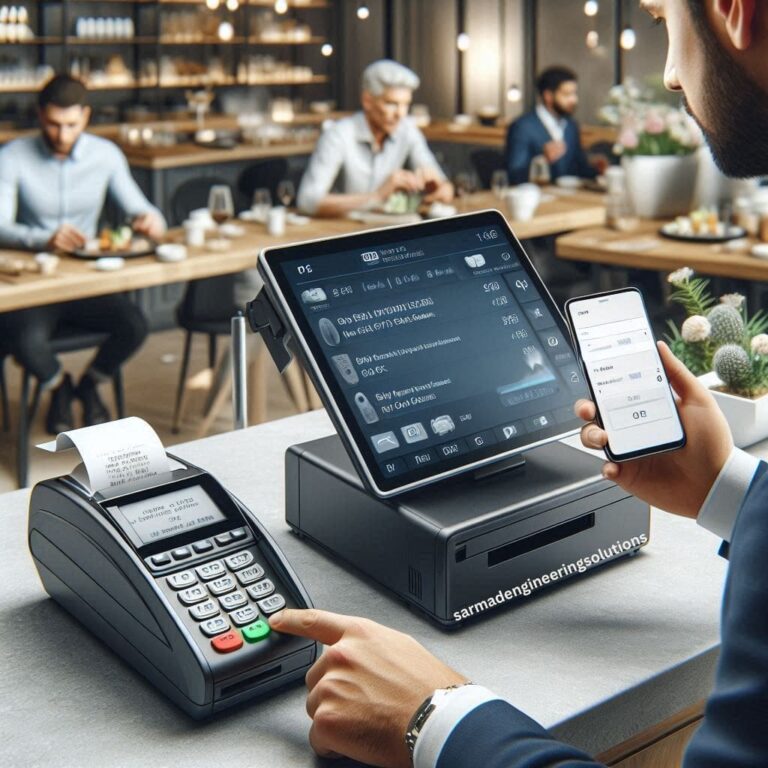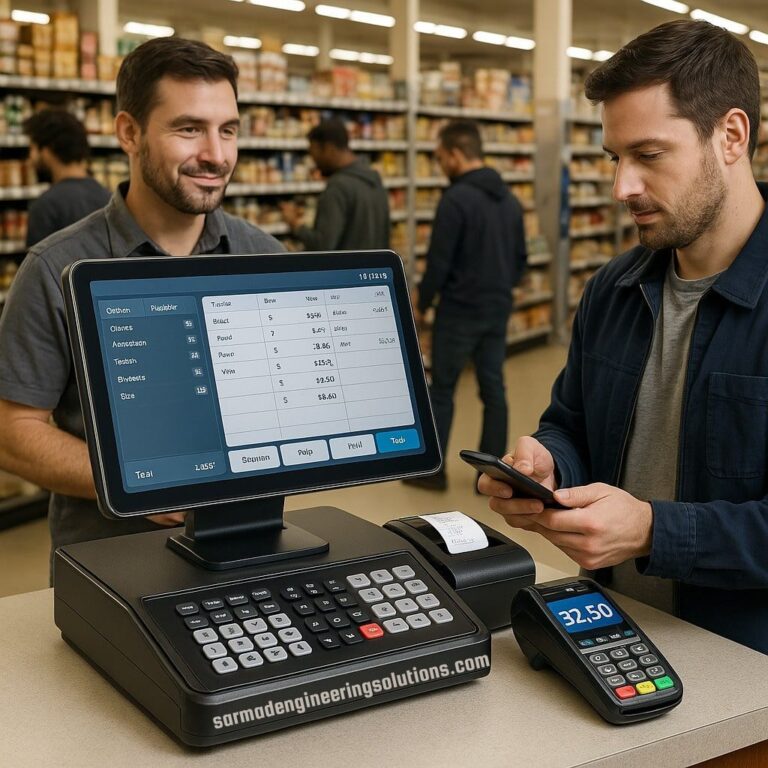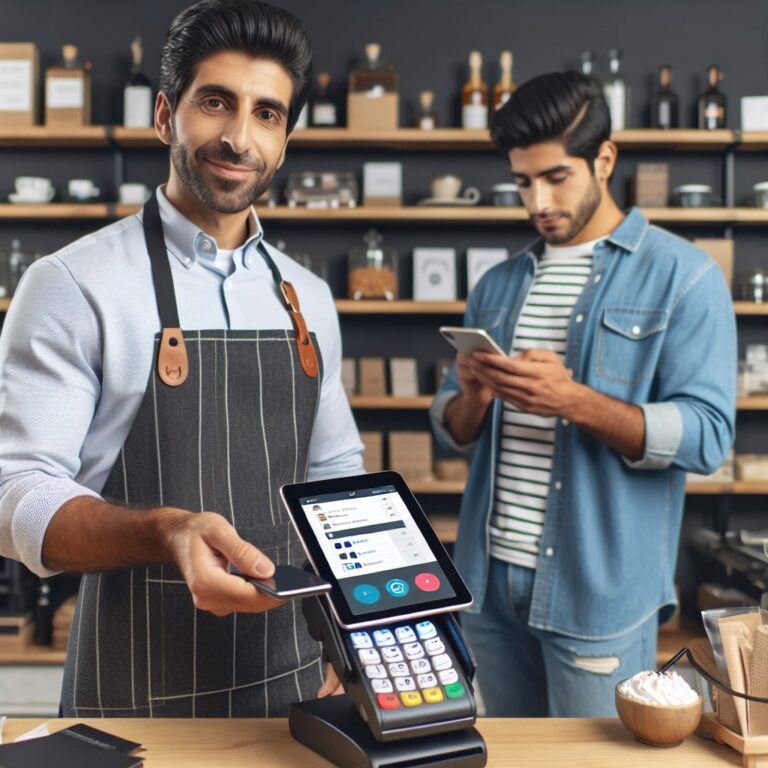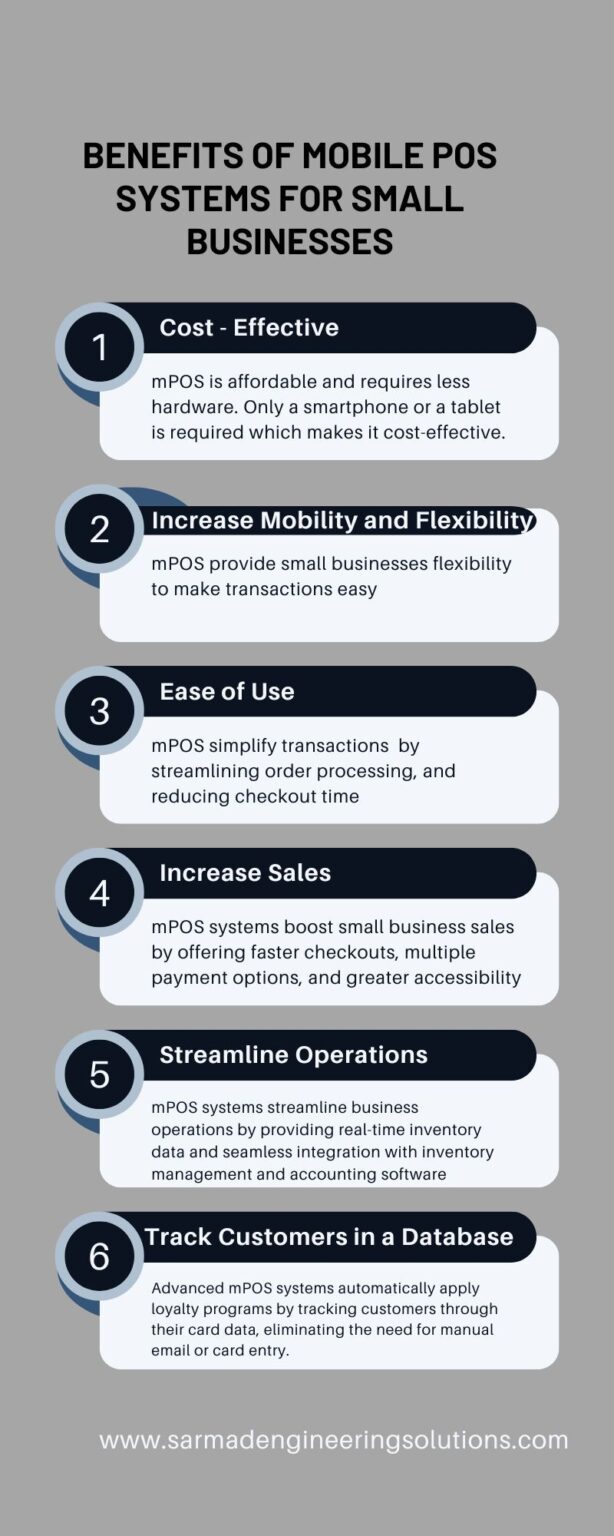
As the world becomes increasingly digitized, small businesses are also moving their business towards a revolutionized era. They have found ways through which they also tend to be equal with large businesses to some extent. They are now curious about how to make business computerized to increase customer attention and satisfy customers’ experiences. One important development in recent years is mobile point-of-sale systems. It is an astonishing technology that is helpful for small businesses to accept payments on the go using smartphones or tablets.
What is a mobile point of sale system:
A mobile point of sale system (mPOS) is a portable device like smartphone, tablet, or wireless device that uses software to perform the functions of a cash register or electronic point of sale system. It enables businesses to handle transactions wirelessly, usually with a card reader and cloud-based technology. Because they are more affordable and flexible, mobile POS for small business is gaining popularity rapidly.
To use an mPOS system, businesses need an internet connection, a debit or credit card reader, and the mPOS application installed on a compatible device for processing transactions. The user then has to download a POS app and connect the reader to their mobile device. The mobile POS can connect with the traditional point of sale hardware like a barcode scanner and a cash drawer.
Traditional point of sales in comparison with the mobile point of sales are more complex as they need a desktop or tablet, cash drawer, printer for receipts, credit card machine, and a scanner. This setup is more static and bulky. Whereas, mPOS for small businesses allows small transactions where business needs to move on.
How does a mobile point of sale work?
Any smartphone or tablet can be transformed into a mobile POS system with a downloaded mobile app. When a business owner registers with the app, the salesman sends the business owner a card reader that plugs into a mobile device audio jack to process the credit card. Depending on the software, mPOS is linked with the business’s bank account or can be integrated as part of the legacy point of sale system. To protect the credit card data, customer data is stored in the cloud, not in the device.

Benefits of Mobile POS Systems for Small Businesses:
The following are the benefits that mobile point-of-sale systems provide to small businesses;
1. Cost-Effective:
Traditional POS is more expensive and burdened to establish as it requires proper setup of a desktop, receipt printer, scanner, and credit card machine. On the other hand, portable POS systems for small business is affordable and requires less hardware. Only a smartphone or a tablet is required which makes it cost-effective.
2. Increase Mobility and Flexibility:
Mobile POS is more flexible and mobile than the traditional point of sale system. They provide small business flexibility to make transactions easy. They are so mobile that they provide ease either at a physical store, a trade show, or any other site. Businesses can provide their customers flexibility to make transactions and satisfy them.
3. Ease of Use:
Mobile point-of-sale systems are easy to use not only for employees but also for customers. The employees can easily make transactions and all operations with mPOS. It allows employees to focus on the order-taking process and provide customers with their stuff on time. This reduces and saves all the checkout process that occurs during manual transactions. Customers also transact any amount through their mobile phones.
4. Provide Multiple Options for receipts:
Not only does traditional POS provide multiple options for receipts but mobile point of sale systems has become so advanced that it also provides this opportunity. mPOS allows business owners to transact every amount electronically. This not only satisfies the customers but is also helpful for the growth of the business.

5. Increase Sales:
Through many ways, mPOS can increase sales of small businesses. They provide additional checkout processes, reduce customers’ waiting time, and improve their overall shopping experience. Customers, anywhere, can transact their payments which increases the reach of a business and attracts your customers towards you. In addition, you can be beneficial by providing various payment options, including contactless payments which is also helpful to increase your sales.
6. Customer Relationship Management (CRM):
Some mobile point of sale provides the feature of CRM, allowing businesses to collect and analyze customer data. This information will be beneficial for personalizing marketing efforts, enhancing customer service, and building long-term relationships with customers.
7. Streamline Operations:
Mobile point of sale systems help to streamline business operations. From accessing real-time inventory data to all inventory management, they streamline all the operations. Mobile point-of-sale systems help integrate with other business systems, such as inventory management and accounting software.
8. Track Customers in a database:
Modern mPOS systems are so advanced that they can track customers based on their payment card. When a customer returns to the store, the system can automatically recognize them and apply any loyalty rewards or discounts linked to their profile. In many cases, customers don’t need to provide their email or show a loyalty card again because the mPOS database stores their information and handles this process automatically.
9. Efficient and Reliable Transactions:
Not only do POS systems increase the overall efficiency of payment systems, but mobile POS systems are also more efficient and reliable that they can easily do all types of transactions. With its long battery life and connectivity options, businesses rely on it rather than plug their POS machines and Wifi to accept payment through transactions. This mobile POS system makes transactions by reducing inefficiencies and making sure that customers can transact payments anywhere in the store.
10. Time Saver and Decrease Checkout lines:
With the continuous rise of online shopping, customers are now accustomed to completing purchases with a single click. As a result, traditional brick-and-mortar businesses need to transition to electronic transactions to reduce customer waiting time during checkout. A mobile point of sale system for small business connects directly through smartphones and tablets, allowing business owners to accept payments by swiping a debit or credit card anywhere in the store. This helps save time and speeds up the checkout process.
Conclusion:
In summary, mPOS is user-friendly for every type of small business. They are more convenient and effective for making transactions for their business. They enhance the customer experience and smooth inventory management, are cost-effective, and increase the mobility and flexibility of businesses. So small businesses can increase their business growth by using best mobile point of sale system.

